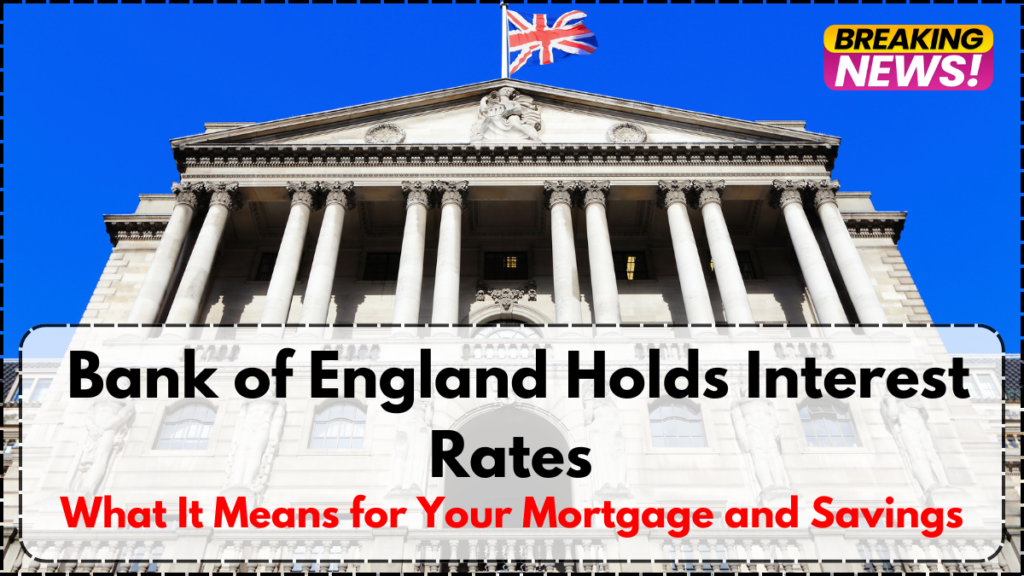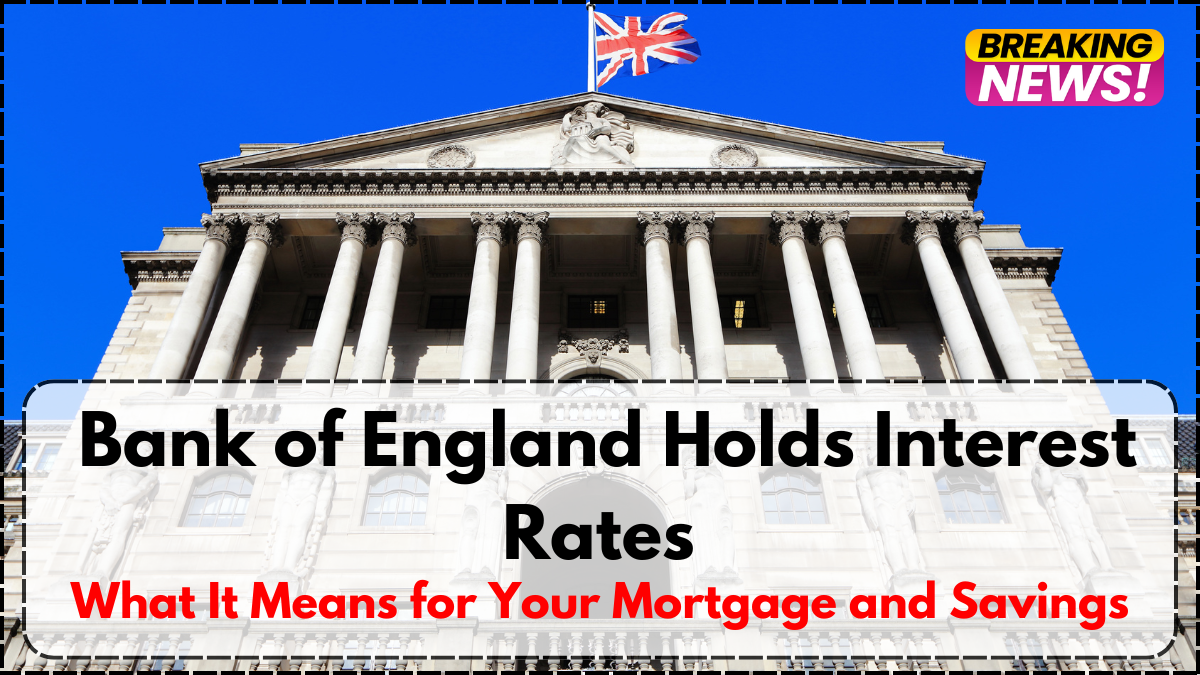In April 2025, the Bank of England chose to maintain the base interest rate at 4.5%, following two consecutive cuts since its peak of 5.25% in August 2024. The Monetary Policy Committee (MPC) reached this decision with a strong majority—eight out of nine members voted to keep the rate unchanged.
This steady rate reflects ongoing caution in a complex economic environment. According to Bank of England Governor Andrew Bailey, “The economic outlook remains uncertain. Although we believe the path of interest rates will continue downward, we decided to hold them at 4.5% for now.”

Why the Base Rate Matters
The base rate influences borrowing and saving across the UK. It impacts:
- Mortgage rates
- Loan and credit card interest
- Returns on savings and ISAs
Changes in the base rate can ripple through financial markets, affecting millions of households and savers.
How the April 2025 Rate Hold Affects Mortgages
Roughly 1.2 million homeowners on tracker mortgages will see no immediate change. These loans are directly tied to the base rate, so any pause or movement has an immediate effect on monthly payments.
Likewise, standard variable rate (SVR) mortgages tend to shadow base rate changes. Borrowers on SVRs are likely to see their payments remain steady for now.
However, fixed-rate mortgage holders may face a different reality. Although current monthly payments remain stable, around 1.8 million fixed-rate deals are expiring in 2025. Many of these were locked in during the ultra-low rate era, meaning a remortgage today will likely come with a notable payment increase.
Jenny Ross, editor at Which? Money, noted the risk: “With many fixed-rate deals ending this year, thousands will face a significant rise in their monthly repayments. The rate hold offers little relief to those coming off older deals.”
Ross urged homeowners feeling the pressure to act quickly: “Talk to your lender. They’re legally required to support borrowers in difficulty. Options may include temporary interest-only payments or payment holidays.”
What This Means for Savings Accounts
Despite the base rate holding steady, savers can still find strong returns—especially in comparison to the current 3% inflation rate.
Here are some of the top-performing accounts as of April 2025:
| Account Type | Provider | Interest Rate | Notes |
|---|---|---|---|
| Cash ISA | Trading 212 | 5.25% | Higher than easy-access options |
| Easy-Access Account | Monument Bank | 4.75% | Max 3 withdrawals annually |
| 90-Day Notice Account | Oxbury Bank | 4.80% | Requires notice before withdrawals |
| Regular Saver | Principality Building Society | 7.50% | Fixed for 6 months, deposit cap of £200/month |
John Dentry of Pay.UK reminded consumers that rate stability doesn’t mean inaction: “Even with the base rate on hold, many banks are still competing for savers.”
He pointed to increased account switching activity: “Over one million people changed current accounts in 2024. Consumers are clearly shopping for value.”
Strategic Advice for Savers and Borrowers
- Homeowners nearing remortgage: Start comparing deals now. Consider locking in a rate before further volatility.
- Tracker/SVR mortgage holders: Monitor future MPC meetings closely, as any changes could impact your monthly payment.
- Savers: Compare across ISAs, notice accounts, and regular savers. Diversifying savings can help you beat inflation.
Conclusion
While the Bank of England’s April 2025 decision to keep the base rate at 4.5% may signal economic caution, the real impact depends on your financial situation. For homeowners, especially those nearing the end of a fixed-rate deal, proactive planning is critical. Savers still have options to outperform inflation, but staying informed and comparing offerings remains essential.
FAQ
What is the current Bank of England base rate?
As of April 2025, the Bank of England base rate is 4.5%.
Will mortgage rates drop later this year?
It’s possible. The Bank of England has indicated that rates are on a downward trajectory, but the timing of further cuts depends on economic data.
Are savings accounts still worth it?
Yes. Many savings accounts still offer rates above inflation, especially regular saver accounts and Cash ISAs.
What should I do if I’m struggling with mortgage payments?
Contact your mortgage lender immediately. Lenders are required to provide support options, including payment holidays or switching to interest-only payments.
How can I get the best savings rate?
Use comparison tools and monitor banks’ offers. Look beyond big banks to challenger banks, which often offer higher rates.
For More Information Click Here
Pari is a passionate writer known for captivating stories that blend imagination and reality. Inspired by travel, history, and everyday moments, Pari crafts narratives that resonate deeply with readers.




